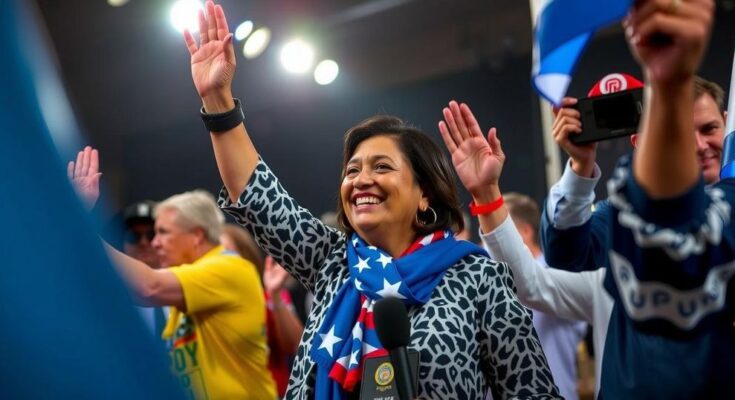Yamandu Orsi of the centre-left Broad Front won Uruguay’s presidential runoff, defeating conservative Alvaro Delgado with 49.77% of the vote. His victory marks a broader trend of incumbents losing ground in global elections. Orsi’s moderate policies aim to address critical issues without significant shifts in governance. Both candidates expressed commitment to collaboration despite the election outcome, highlighting Uruguay’s relatively stable political environment compared to regional counterparts.
Yamandu Orsi, a candidate from the centre-left opposition, emerged as the victor in Uruguay’s presidential runoff election, with official results indicating that he received 49.77% of the votes compared to conservative candidate Alvaro Delgado’s 45.94%. Orsi, a former history teacher and two-time mayor, celebrated his victory, declaring that a brighter future awaits the nation. President Luis Lacalle Pou and Delgado promptly acknowledged their defeat, emphasizing a collaborative approach in moving forward to benefit the country.
This election manifests a significant political shift as Uruguay joins a series of nations experiencing high-profile changes in leadership amid divisive elections elsewhere in South America. Despite prevalent concerns regarding living costs, inequality, and crime in Uruguay, the political landscape remains relatively stable, with significant similarities present across party lines. Orsi’s moderate policies are aimed at addressing citizen concerns without imposing drastic changes in national governance.
The recent electoral results display patterns consistent with a global trend where incumbent parties are experiencing shrinking support. Analytical observers note that the competition between the two moderate candidates reflects the country’s political stability compared to the extreme polarization seen in neighboring countries. Current political challenges persist for the ruling coalition, including ongoing corruption issues, potentially impacting their appeal to voters moving forward.
In the context of Uruguay’s political climate, the recent election illustrates a broader global trend where citizens have expressed a desire for change in leadership. This reflects a growing dissatisfaction with incumbent parties, particularly in a year characterized by significant electoral events worldwide. Uruguay, known for its relative stability, legality of marijuana, and socio-economic developments, exhibits a unique political landscape that diverges from the high tensions seen in other Latin American nations. The approach of both Orsi and Delgado, aiming for moderate solutions, reflects an understanding of the need for cooperation in governance to address pressing national issues. Economic concerns, including inflation and employment rates, create a backdrop for voters’ decisions. Candidates are increasingly acknowledging the necessity of addressing the realities faced by everyday citizens while navigating a complicated political framework. The election outcome suggests that moderate policy promises may resonate more effectively in this setting, as voters prioritize pragmatic governance over ideological divides. Ultimately, the election results are a testament to the public’s responsiveness to issues affecting their quality of life, indicating a willingness to endorse candidates perceived as solutions-oriented amidst national challenges. The significance of the electoral shift away from traditional party lines illustrates the evolving political narrative within Uruguay.
In conclusion, the victory of Yamandu Orsi in Uruguay’s presidential runoff signifies a pivotal moment in the nation’s political landscape, reflecting the electorate’s desire for progressive leadership and solutions to ongoing socio-economic concerns. The collaboration expressed by both winning and losing candidates underscores the importance of unity in governance. With both parties acknowledging the necessity for constructive dialogue, the future of Uruguay appears more focused on enhancing civic welfare rather than adhering to polarizing ideologies. As the nation moves forward, the implications of this election may set a precedent for future political engagements and policy developments in Uruguay.
Original Source: www.theguardian.com




